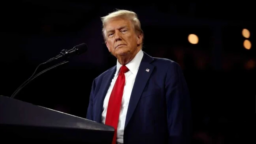Jay Marciano, Chairman and CEO of AEG Presents, has issued a strong statement regarding the Department of Justice’s (DOJ) ongoing lawsuit against Live Nation and its subsidiary, Ticketmaster.
In a memo obtained by MBW dated May 31, Marciano labeled Live Nation/Ticketmaster as a “monopoly” and expressed confidence in the DOJ’s ability to win the case.
“AEG has long maintained that Ticketmaster has a monopoly in the US ticketing marketplace and uses that monopoly power to subsidize Live Nation’s content businesses, preventing other businesses from competing in those areas and leaving consumers to suffer the consequences,” Marciano wrote.
Marciano’s memo comes in the wake of intensified scrutiny of Live Nation and Ticketmaster after the US Department of Justice’s recent lawsuit alleging anti-competitive practices. Last week, following an 18-month investigation, the DOJ filed a civil antitrust complaint against Live Nation for what it describes as “monopolization and other unlawful conduct that thwarts competition in markets across the live entertainment industry.”
The DOJ’s lawsuit argues that Live Nation and Ticketmaster’s dominant position in the US ticketing market, combined with exclusive contracts and owned and operated venues, stifles competition and inflates ticketing fees, affecting consumers and artists.
“Ticketmaster has a monopoly in the US ticketing marketplace and uses that monopoly power to subsidize Live Nation’s content businesses, preventing other businesses from competing in those areas.”
Jay Marciano, AEG Presents
Marciano said the lawsuit is not only intended to break up a monopoly, but to rescue “the entire ecosystem of our industry, one that has long suffered from a badly broken ticketing model.”
The AEG boss added that Live Nation’s exclusive ticketing contracts “block competition and innovation and result in higher ticketing fees, denying artists the ability to choose who will ticket their shows and how much their fans should pay.”
Live Nation has repeatedly dismissed allegations of it being a monopoly, issuing public statements that point the finger of blame at other industry players. Back in March, Live Nation wrote in a 2,800-word blog post that tickets are priced by artists and sports teams, and not Live Nation itself.
“It’s their show, they get to decide what it costs to get in. The NFL tickets on Ticketmaster were priced by the home teams, concert tickets were priced by the performer’s business teams, Monster Jam tickets were priced by its producer (Feld Entertainment), and so forth,” Live Nation wrote.
In response, Marciano said Live Nation unfairly blamed others for industry problems that it has created.
“Artists, venues, and brokers are not responsible for the broken live entertainment business model in this country – that responsibility lies with Live Nation.”
“While it may take some time, we strongly believe that DOJ’s lawsuit will succeed and ultimately bring sweeping changes.”
Jay Marciano, AEG Presents
“Notwithstanding its claims about its profit margins or its market share, it is a monopoly, and it uses its monopoly power to impose its will on the live entertainment business. Live Nation may claim that its margins on promotion are low, but that’s only because it deploys the excessive profits of its ticketing monopoly to outspend what the concert market can profitably sustain,” Marciano added.
Marciano’s memo also highlighted the broad support for the DOJ’s case, noting that it reflects the sentiment of 30 attorneys general, a number of media outlets, industry commentators, consumer groups, and antitrust experts. He expressed optimism that the DOJ would win the case and that the lawsuit would lead to changes in the industry.
“While it may take some time, we strongly believe that DOJ’s lawsuit will succeed and ultimately bring sweeping changes,” Marciano said.
While Marciano is confident that the DOJ will win in the legal battle, legal analysts say the department could have a hard time convincing the court that breaking up Live Nation/Ticketmaster would solve the problems that it alleges as the DOJ approved the merger in 2010 and reached another agreement in 2019 over alleged monopolistic practices.
You can read the full memo written by AEG Present Chairman and CEO Jay Marciano below.
No doubt all of you are closely following the ongoing media coverage in the wake of the Department of Justice lawsuit against Live Nation and Ticketmaster. As I mentioned in my note from last week, we spent the last few days carefully reviewing the DOJ filing, as well as Live Nation’s subsequent response to the complaint.
AEG has long maintained that Ticketmaster has a monopoly in the U.S. ticketing marketplace and uses that monopoly power to subsidize Live Nation’s content businesses, preventing other businesses from competing in those areas and leaving consumers to suffer the consequences. This lawsuit is not simply DOJ suing to break up a monopoly; at stake is the entire ecosystem of our industry, one that has long suffered from a badly broken ticketing model. As you know, the cornerstone of Live Nation’s monopoly is Ticketmaster’s exclusive ticketing contracts with the vast majority of major concert venues in the United States. These agreements block competition and innovation and result in higher ticketing fees, denying artists the ability to choose who will ticket their shows and how much their fans should pay.
Following the DOJ filing, Live Nation issued several public comments in service of its ongoing strategy to maintain its dominance – unfairly blaming others for industry problems they have created, making false and misleading statements, and dismissing the significance of the case. Artists, venues, and brokers are not responsible for the broken live entertainment business model in this country – that responsibility lies with Live Nation. Notwithstanding its claims about its profit margins or its market share, it is a monopoly, and it uses its monopoly power to impose its will on the live entertainment business. Live Nation may claim that its margins on promotion are low, but that’s only because it deploys the excessive profits of its ticketing monopoly to outspend what the concert market can profitably sustain. Live Nation does this with the goal of removing competitors from the business and in turn using its continued control of content to preserve a stranglehold on ticketing through venue exclusives.
The DOJ’s case is serious and reflects widespread sentiment among 30 attorneys general from across the country, numerous media outlets, industry commentators, consumer groups, and antitrust experts that Live Nation’s conduct violates the law and harms competition and consumers. While it may take some time, we strongly believe that DOJ’s lawsuit will succeed and ultimately bring sweeping changes resulting in increased competition and more innovation and choice that benefits fans, artists, and our entire industry. DOJ’s lawsuit means that artists will have a choice in who tickets their concerts, that the ticketing fees consumers pay will be lower, and ultimately that artists and fans will have access to what we all want: more and higher quality live entertainment experiences at a price that fans can afford. We look forward to each and every one of you helping us lay the groundwork now for the future of the industry.
Let’s not get distracted by Live Nation spin. Instead, let’s stay focused on continuing to execute at the highest level, and preparing for a future state of the industry: a world with more competition, more innovation, artist and consumer choice, lower ticketing fees, and more music.
Jay Marciano
Chairman and CEO, AEG PresentsMusic Business Worldwide




